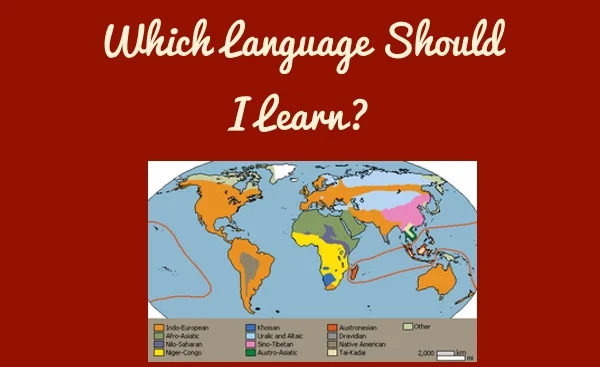Imagine you're learning a language that's so easy that you're having full conversations within just a few hours. The vocabulary makes sense, the grammar feels natural...it's all just very easy. You've found the holy grail of languages...the one that you'll find so easy that you'll master it in just a few hours.
Listen to the latest podcast episode to hear Lindsay and me discuss this topic with lots of surprising insights and our own hit lists of top 5 easiest languages.
Here are a few of the factors that determine if you will find a language easy or difficult:
Language Families: What Is Similar to What You Already Know?
Familiarity is the most obvious way to guess whether a language is going to be easy for you to learn. The closer its structures and vocabulary are to your native language, the easier it should be to understand and learn them.
The idea: Languages in your language family are the ones that give you the least new material to learn. With less to learn, that means you don't have to work as hard. It's easy!
What You See = All You Get?
The language families theory works perfectly, but it has one flaw: Without knowing about the languages you don't know...how can you tell that those familiar ones really are the easiest?
For example, speakers of a Latin-based language like Spanish will list Italian and Portuguese as their easy languages... but fewer people mention Romanian. Romanian is less popular, but it is still Latin-based and fairly accessible.
Many people start to mistake languages that are widely spoken with languages that are easy. And that makes sense in terms of access - how easy is it to find materials for your language? How unusual do you feel when you’re learning this language?
But is the most popular language really the easiest? Maybe there's more to it!
Language History: Where Have Languages Been Designed to Ease Communication?
Sometimes, a language emerges because it needs to create ease of communication quickly and often this leads to simplified grammar structures. Languages designed to aid communication are Pidgins and sign languages, for example. They’re considered easy partly because they are based on existing languages.
In the podcast, we discuss whether a pidgin or a sign language could be the easiest language in the world...or maybe not?
Learner Situation: Which Language(s) Have You Learnt Before?
In my Facebook group, one learner replied to my question “Which are the easiest languages for you?” in an unusual way. She said:
"I think the easiest three are often your last three, because you develop your language learning strategy as you work out which things help you learn"
It's very true. Languages can be easier or harder depending on you and where your skillset and mindset are at.
A bad experience in the past (like in school) can give you the impression that a language is hard, when it may have been more to do with your learning environment.
In addition to this, some languages just call to you and that motivation makes the complex grammar or weird vocabulary a joy to learn rather than a burden.
So What Makes a Language Easy or Hard?
It's personal to you as the language learner, so there is no general answer. What you know and the languages you know are also limited, so...in a way you won't ever have the answer until you try.
But remember: It’s hard not to confuse “easy” with “available".
What Were Your Top 5 Easiest Languages?
Listen to the podcast to hear our lists of easy languages and share your views in the comments below



